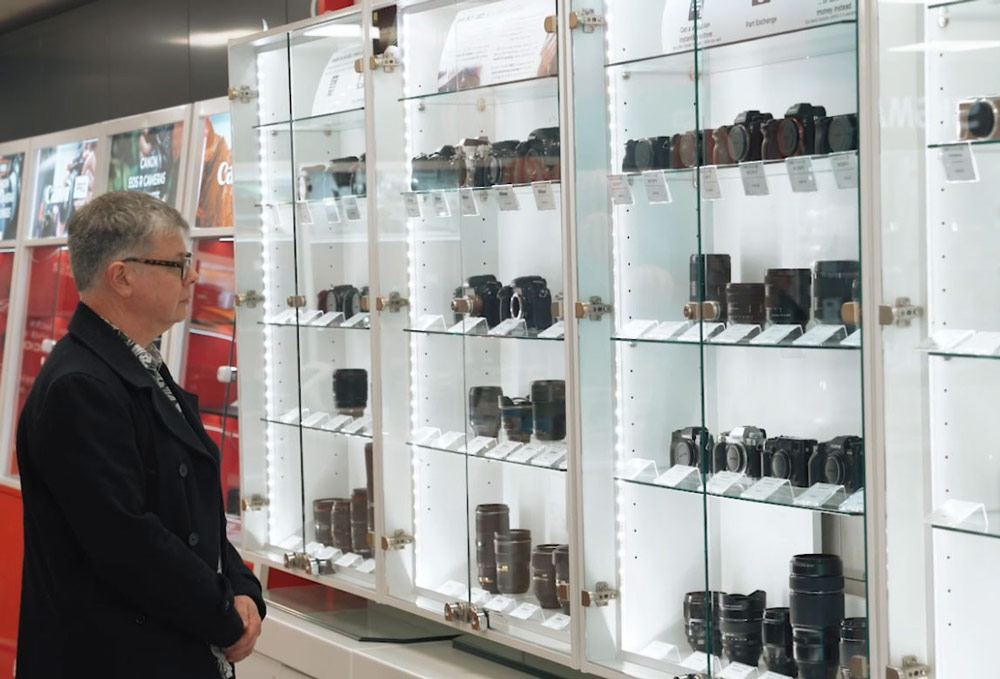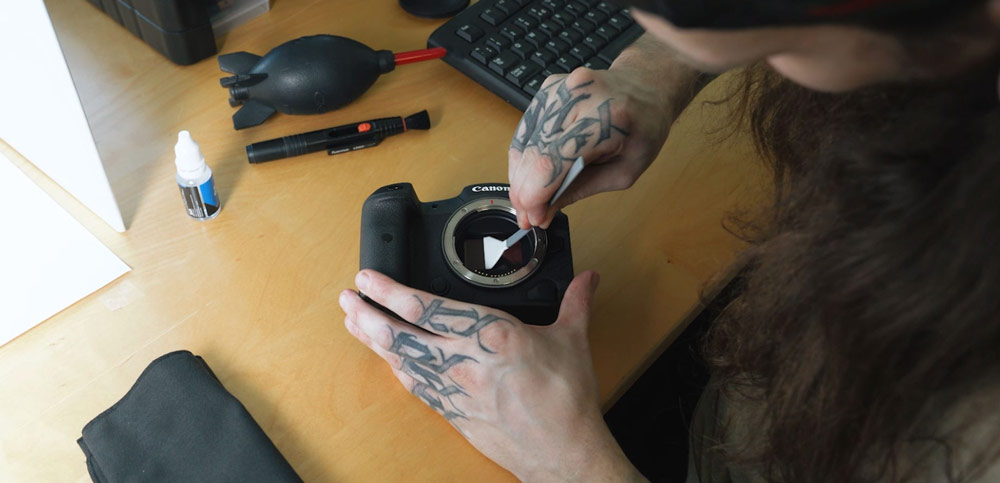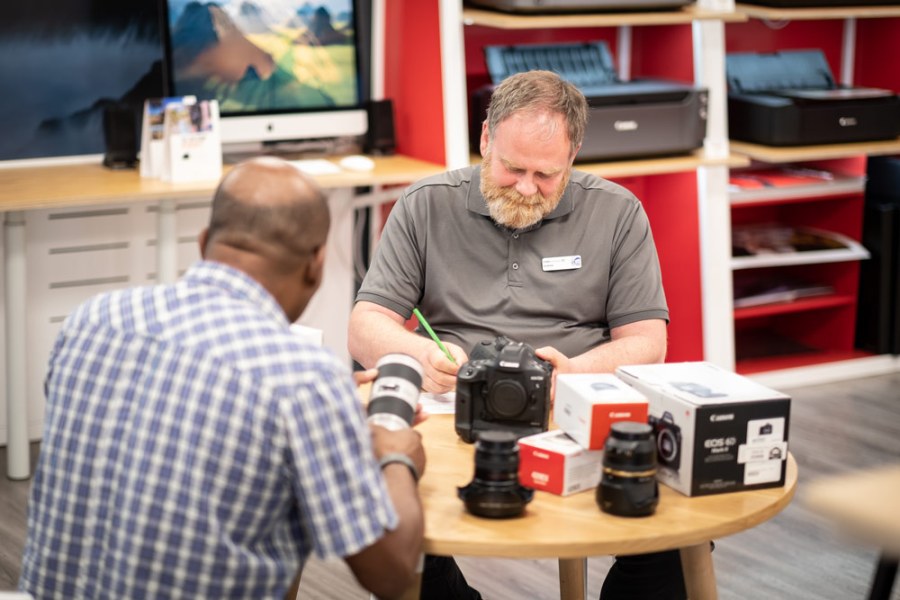The latest and greatest mirrorless cameras and lenses aren’t exactly cheap, which is why the market for used cameras and lenses continues to be buoyant.
A quality, six-year-old camera, for example, is quite venerable in technology terms, but still highly capable for most photography needs (unless you need the very latest in high-performance AF and video features, for example). Quality lenses, meanwhile, hold their value well.

If you do decide to sell your used kit, we recommend doing it via a specialist retailer. eBay or Gumtree can be tempting in terms of getting the most money, but there are risks from scammers and time-wasters, and there is the worry of negative feedback from a buyer – some people are just very hard to please, or go out of their way to find problems in order to get some money back off you.
Show me the money
With this in mind, Park Cameras has set up a special ‘Trade-in Thursday’ next week, enabling you to get a quote while you wait. The retailers’ stores, in central London and Burgess Hill in West Sussex will be open until 7.30pm that day (Thursday 30th May), which is handy if you can’t get there during working hours.
‘You can then part-exchange there and then, or if you want the cash, this will be in your bank account the very next day,’ said the company. ‘Please allow at least 30 minutes for your kit to be appraised.’

Tips for getting the best price for your camera and lens
- Get everything together beforehand. While it’s not a deal breaker, the chances are you will get a better quote if you have the original boxes and battery, plus charger. Lens caps are less of an issue, but if you can find the originals, that’s also better.
- If you do get chance, get the sensor cleaned beforehand: although many retailers will price-in the cost of doing this themselves (if necessary), it won’t hurt.
- Obviously give your camera body and lens a good cosmetic clean, but more importantly, check for mould inside the lenses. This really is a deal breaker for many retailers, as it can be a pig to remove and spreads quickly. Some mould and fungus is hard to spot, but turning on the torch on your phone and carefully inspecting the lens and visible parts of the camera’s insides should give you an idea and avoid a disappointing trip.
- To avoid mould and fungus altogether, store your camera equipment in a dry, safe place, such as a storage cabinet. Put in a silicon gel sachet to help absorb any moisture in the air. Carefully dry off your camera and lens if it has got wet, too, even if it is weather-sealed.
Park Cameras has also put together a useful YouTube video, which you can watch below.
Further reading
How do you get the best price for used cameras and gear
How to clean your camera sensor







